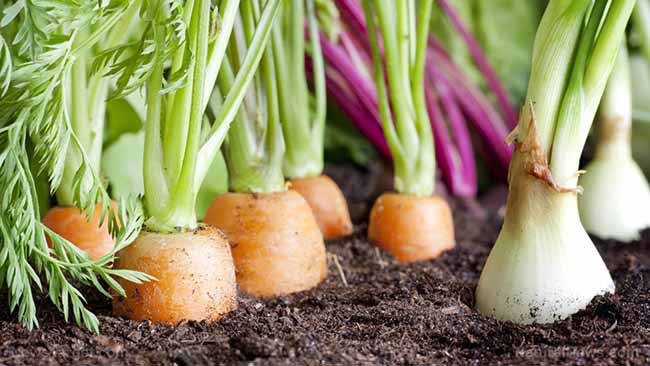10/11/2022 / – The U.S. Department of Agriculture (USDA) has recently resumed its “People’s Garden Initiative,” which includes the registration of people’s vegetable gardens across the nation. The initiative seeks to empower communities to participate in local food production and provide diversity and resiliency to the food supply chain.
As per the agency’s website, it is building a “more diverse and resilient local food system to address issues like nutrition access and climate change.” The guidelines provided that school gardens, community gardens, urban farms and small-scale agriculture projects in rural, suburban and urban areas can be recognized as a “people’s garden” once they register on the site.
“We welcome gardens nationwide to join us in the people’s garden effort and all it represents,” USDA Secretary Tom Vilsack said. “Local gardens across the country share USDA’s goals of building more diversified and resilient local food systems, empowering communities to come together around expanding access to healthy food, addressing climate change and advancing equity.”
He further encouraged existing and new gardens to join the movement as “growing local food benefits local communities in so many ways.” Moreover, Vilsack added that they offer technical resources to help and this paves a way for people to connect with the local USDA team members.
However, the USDA’s move aroused suspicions among analysts, who said the initiative is an effort to spy on Americans and not to promote healthy eating. The project will allow Big Government – which spends billions every year on companies whose products are responsible for a massive obesity epidemic – to have a database of vegetable gardens. Besides, the USDA mission statement does not involve keeping Americans healthy.
“Skepticism over a national garden database run by this organization is entirely warranted. As the world teeters on the verge of nuclear war and economic collapse, remember that in times of war and economic downturns, food is more valuable than gold,” Matt Agorist, former intelligence operator and independent journalist wrote in the Free Thought Project. (Related: UN food chief warns of “chaos,” “hell,” “devastation” from FAMINE … expect price controls, rationing and criminalization of preppers … HIDE YOUR FOOD.)
USDA willing to endanger public health for benefit of corporations
While a handful of USDA officials may have well-meaning intentions behind the said program, the suspicions of analysts cannot be discounted as the federal agency has shown time and again its willingness to endanger public health for the benefit of corporations that are making unhealthy products.
In December 2020, a scientific committee composed of 20 academics and doctors recommended cutting the limit for added sugars in the diet to six percent from 10 percent in the current guidelines.
The group presented compiled data and requested the USDA to cut the limit for added sugars, citing rising rates of obesity and the link between obesity and health problems like Type 2 diabetes, heart disease and cancer. They asked for a very minimal four percent less in the recommended sugar intake in foods but the agency refused.
“The new evidence is not substantial enough to support changes to quantitative recommendations for either added sugars or alcohol,” Brandon Lipps, USDA deputy undersecretary for food, nutrition and consumer services, told the Wall Street Journal at the time.
The American Beverage Association, which represents drink makers like Coca-Cola and PepsiCo, backed the government in keeping the 10 percent added-sugars limit. Katherine Lugar, the organization’s president and chief executive, said in a statement: “America’s beverage companies appreciate the common sense approach taken by USDA.”
The alcohol industry also praised the decision.
“It was clear that excessive sugar intake was connected to comorbidities like heart disease, type 2 diabetes and obesity. “All of which drastically increased complications from a [Wuhan coronavirus] COVID-19 infection. Yet the USDA, who pretends to care about your health, refused to budge in the slightest,” Agorist said.
Visit FoodSupply.news for more news related to gardening and food independence. Foods.news.



